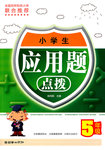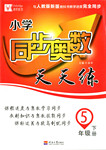题目内容
He is no my friend, only ____________.
A. requirement B. acquisition
C. announcement D. acquaintance
练习册系列答案
 精英口算卡系列答案
精英口算卡系列答案 应用题点拨系列答案
应用题点拨系列答案 状元及第系列答案
状元及第系列答案 同步奥数系列答案
同步奥数系列答案
相关题目
题目内容
He is no my friend, only ____________.
A. requirement B. acquisition
C. announcement D. acquaintance
 精英口算卡系列答案
精英口算卡系列答案 应用题点拨系列答案
应用题点拨系列答案 状元及第系列答案
状元及第系列答案 同步奥数系列答案
同步奥数系列答案